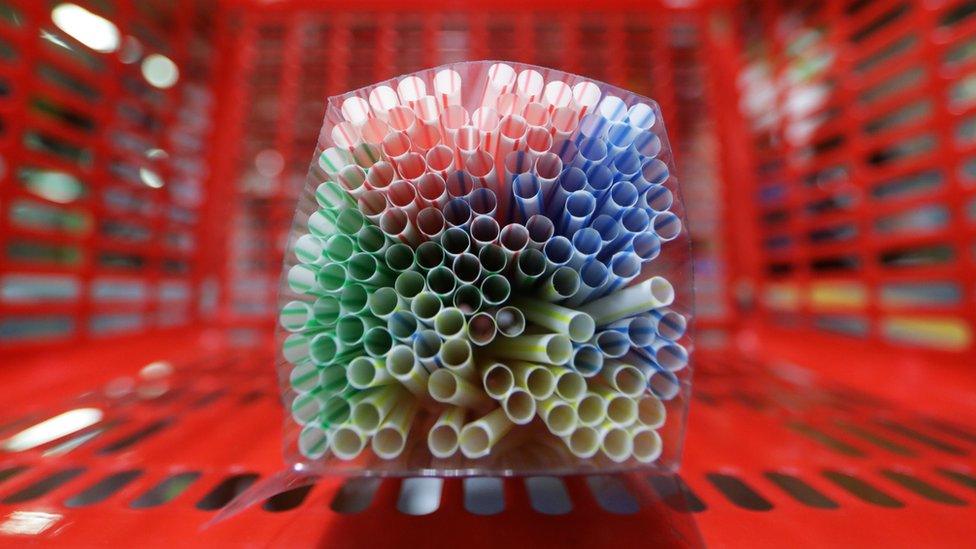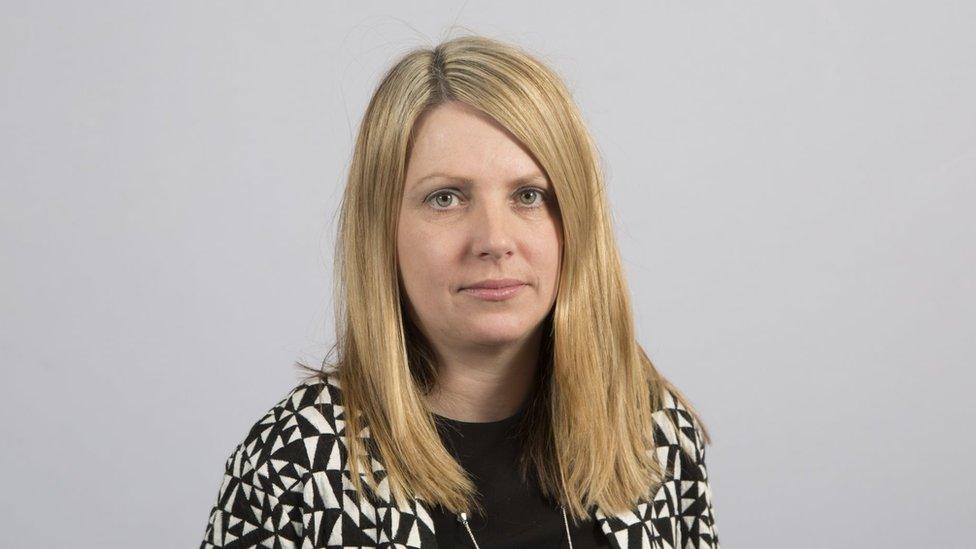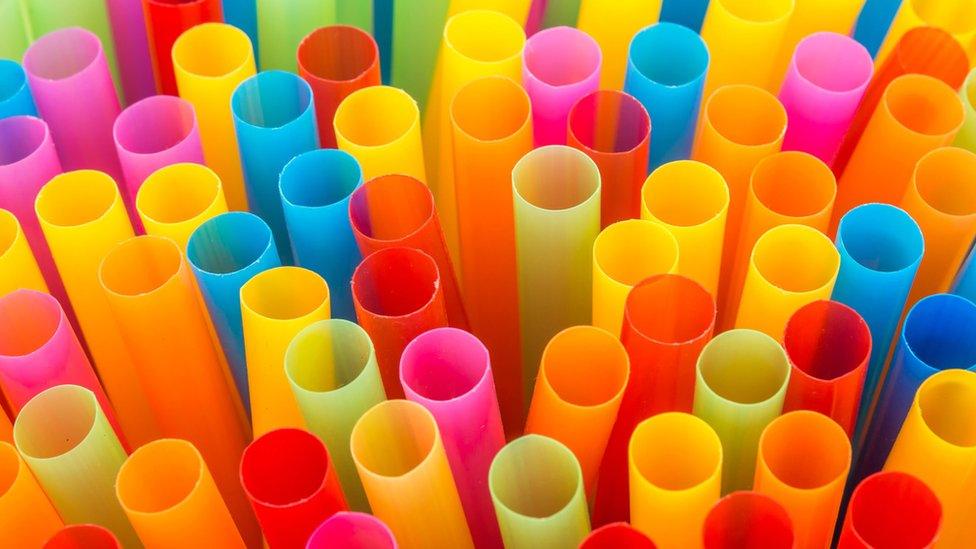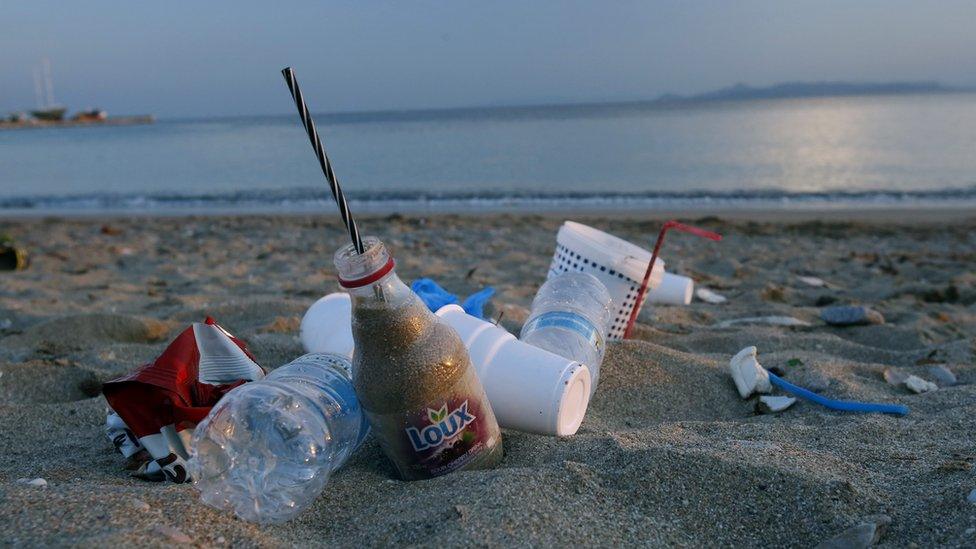Single-use plastics ban in Wales unveiled
- Published
- comments

Plans to ban a wide range of single-use plastics have been confirmed by the Welsh Government.
Plastic straws, cotton buds and balloon sticks are among the items set to be outlawed from 2021, or subject to sales restrictions.
It comes ahead of a consultation over how the measures would work in practice.
Environment charities have welcomed the move but said more could be done to tackle ocean waste.
A ban on plastic straws, stirrers and cotton buds in England is set to come into force next month, with the UK Government's legislation currently making its way through parliament.
But the Welsh measures are set to go further, focusing on a longer list of single-use plastics recently banned by a new EU directive.
Scotland has already banned plastic-stemmed cotton buds and intends to match the recent EU directive too.
What will the ban cover?
Plastic straws, stirrers, cotton buds, balloon sticks, plates and cutlery will all be taken off the shelves.
Food and drinks containers made of expanded polystyrene and products made from oxo-degradable plastics, such as certain types of carrier bags, are also being banned.
Legislation would need to be passed first, with the changes set to be introduced in the first half of 2021.
What if I rely on these products?
The minister in charge of recycling, Hannah Blythyn said the Welsh Government would carry out a public consultation "to understand the impact of this proposal, particularly on any citizens who may be reliant on some of the items we have included, to make sure we get it right."
Disabled groups and campaigners including former Welsh Paralympian Baroness Tanni Grey-Thompson have warned that ditching plastic straws could cause problems for people who rely on them to drink independently.

Hannah Blythyn said many of the plastics they want to ban are found on beaches
Under the UK government's plans, people will still be able to ask for plastic straws in bars and restaurants in England.
And medical and scientific laboratories will still be able to buy plastic cotton buds.
The Welsh Government stressed no firm decisions had been taken yet about how the bans would work in practice, and this would be subject to the public consultation.
Why is it happening?
Ms Blythyn said: "The single use plastics we want to ban are hard to recycle and often found on beaches and seas around our coast, blighting our beautiful country and harming our natural and marine environments.
"It is vital we don't throw away our future - which is why we believe taking this direct action will have a significant impact on changing people's behaviour and make them think about their waste when 'on-the-go'."
What's been the reaction?
Jemma Bere, policy and research manager at charity Keep Wales Tidy, predicted the impact on businesses and consumer choice would be "very small because so many alternatives to these products exist".
"It essentially sends a message to the public to urge them to look into the alternatives," she said.
However she stressed banning items was not enough on its own to tackle litter and pollution, a point also reiterated by Haf Elgar, Director of Friends of the Earth Cymru.
Ms Elgar said: "This is just one step and we do need to urgently move to being a zero waste nation.
"Hopefully a number of other measures the Welsh Government is currently consulting on such as introducing a latte levy and deposit return scheme will also be introduced soon."
- Published22 May 2019

- Published24 October 2018
